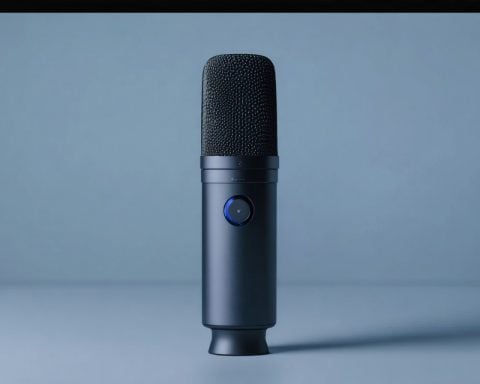Anod Hybrid, a company renowned for its innovative hybrid bicycles, is making headlines with a significant funding boost of €1.7 million for an ambitious R&D project aimed at creating sustainable transportation solutions. The funding is part of the competitive i-Nov program, which supports cutting-edge technological advancements.
The company’s flagship product combines supercapacitors with an energy recovery motor, effectively minimizing lithium use and enhancing recyclability. Set to launch in February 2025 from their facility in Fontenay-le-Comte, these electric bicycles illustrate Anod’s commitment to eco-friendly technology.
Their latest initiative, dubbed Project Mona, is designed to enhance urban mobility through the development of a next-generation electric motor and battery system. Both components will be conceived and assembled in France, aiming to serve a range of light electric vehicles from bicycles to scooters.
With an overall investment of €3.7 million, the project will receive 75% funding from grants and 25% from repayable advances. This program aligns with France 2030’s strategic goals and is expected to culminate in 2027, heralding a new era of energy-efficient solutions.
As Anod secures additional funding, including a prior €310,000 from the Pays de la Loire region, it solidifies its mission to lead the market in electric mobility, emphasizing innovation and sustainability in an increasingly competitive landscape. With their unique approach to energy storage using eco-friendly supercapacitors, Anod is set to transform the future of sustainable transportation.
Revolutionizing Urban Mobility: Anod Hybrid’s Bold Steps Towards Sustainable Transportation
Overview
Anod Hybrid is on the forefront of sustainable transportation with its exciting new developments in hybrid bicycle technology. Recently, the company has attracted significant attention thanks to a €1.7 million funding boost aimed at advancing its ambitious Research and Development (R&D) project focused on eco-friendly transportation solutions.
Innovative Technology
Anod Hybrid is setting itself apart with its flagship product, which incorporates supercapacitors paired with an energy recovery motor. This innovative design significantly reduces reliance on lithium batteries while increasing recyclability—an essential aspect of modern sustainable technology. With a launch set for February 2025 at their manufacturing facility in Fontenay-le-Comte, these electric bicycles promise to embody Anod’s commitment to environmental responsibility.
Project Mona: A Game Changer for Urban Mobility
One of the company’s most significant initiatives, Project Mona, is centered on transforming urban mobility. This forward-thinking project focuses on creating a next-generation electric motor and battery system designed to power various light electric vehicles, including bicycles and scooters. Both the motor and battery assembly will take place in France, reinforcing the company’s dedication to local production.
Financial Backing and Strategic Goals
The total investment for Project Mona reaches €3.7 million, with a substantial portion—75%—coming from grants and the remaining 25% from repayable advances. This funding aligns with the France 2030 strategic initiative aimed at fostering technological advancements that could lead to a more sustainable future. The project is projected to conclude by 2027, marking a significant milestone in energy-efficient transportation solutions.
Market Position and Future Outlook
As Anod Hybrid secures additional funding, such as a previous €310,000 from the Pays de la Loire region, the company is solidifying its position as a leader in the electric mobility sector. Its focus on innovating sustainable technology positions Anod at the forefront of a rapidly evolving market, responding to growing consumer demand for eco-friendly transport options.
Pros and Cons of Anod’s Approach
Pros:
– Sustainability: Reduces lithium use and enhances recyclability.
– Innovation: Combines supercapacitors with energy recovery systems.
– Local Manufacturing: Supports local economies through French assembly.
Cons:
– Market Competition: Faces challenges from several established electric vehicle manufacturers.
– Development Timeline: Long-term project timelines may affect market entry.
Conclusion
Anod Hybrid’s initiative in developing sustainable transportation solutions exemplifies a proactive approach to urban mobility. With Project Mona and its innovative hybrid bicycles on the horizon, the company is poised to influence the future of transportation significantly. Their unique approach to energy storage and dedication to eco-friendly practices signal a transformative era in sustainable mobility solutions.
For more insights into sustainable transportation innovations, visit Anod Hybrid.












